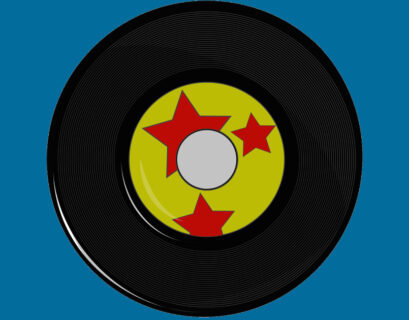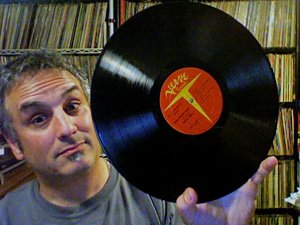It’s the time of year for saving money!
Before I could write this review of the fascinating new archival release from Omnivore Recordings by legendary-but-lost-to-the-ages jazz pianist Hasaan Ibn Ali, I had to do some research listening. Like many of you, I’d never heard of this artist who only had the opportunity to release one album in the mid 1960s, made with no less than Max Roach(!), issued on Atlantic Records.
That album — called The Max Roach Trio Featuring The Legendary Hasaan Ibn Ali — has indeed gone down into the stuff of legend and rarity, as has his ultimately tragic drug-related, music-business-casualty back story. I’ve been listening to CD-quality streams of this album on Qobuz (click here) and Tidal (click here) and it is indeed a fine session. No doubt, his was a sort of still-then-fresh approach to the piano akin to Thelonious Monk. Yet, Ali has his own thing going on here and I find his inherent playfulness quite appealing.
This is apparent right from the start of the album on the rollicking “Three-Four vs. Six-Eight Four-Four Ways” which delivers exactly what the title says: music first in 3/4 time, then switching up to 6/8 and into 4/4 before cycling back to 3/4. These days, this sort of time play is fairly common. Back in 1965, it was still fairly new conceptually, at least as popular-leaning recordings went.
Digging into this new archival Hasaan Ibn Ali release from Omnivore Recordings called Metaphysics, I was taken with the shear beauty and passion of the music. While that first album with Max Roach is wonderful, this previously unreleased sophomore album would likely have been the first one credited solely to the artist. Playing with his own band, they sound like a unit here.
Propelled by Kalil Madi on drums (The Three Sounds, Billie Holiday, Mongo Santamaria, etc.) and Art Davis again on bass (Monk, Dizzy, Coltrane, Roach, etc.) the group is rounded out by a soaring Odeon Pope on saxophone. It is worth pointing out that this was Pope’s first recording at age 26 and he helps to lift the session into that special space which feels timeless and classic. He went onto a prolific career including 22 years with Max Roach as well as a multitude of other notable projects.
“Atlantic Ones” is a catchy driving opener. “Viceroy” has a sweet and immediately hooky melody which in a simpler arrangement could be transformed into a soothing lounge jazz piece for soaking up stiff drinks late nights at the bar.
The title track “Metaphysics” is a smoker with some incredible connectivity between Ali and bassist Davis showcased. I love how at points it sounds like the piano and bass are floating in the air above the drummer’s pulse as they stretch and dance around the constraints of keeping strict time. “True Train” is no doubt a tribute to Coltrane and it is remarkable because, if you really didn’t know the music too well you might well think it is in fact a Coltrane tune, albeit from his late ‘50s ascent to stardom.
There are some terrific details in the liner notes by producer Al Sukoenig and Coltrane authority Lewis Porter so be sure to get one of the physical versions of Metaphysics.
That said, the CD I’ve been listening to sounds remarkably good. Metaphysics was restored and mastered by Grammy Award-winning engineer Michael Graves from a tape copy of long-lost reference acetates of the sessions. It sounds very good with no apparent drop-outs of note, and just a hint of distortion here and there (perhaps from tape saturation or wear on the acetate copy). There is a nice sense of the studio vibe surrounding the band in this Monaural recording.
As I got into Metaphysics I had to pause to think about what might have been had life been different for this artist who never really got a chance to shine in the limelight (which you will read about in the liner notes to the new album). What might have happened had he become a success like Monk (who himself suffered for decades before the public caught up with him)? Would more pianists have moved in his direction? Would we have had more sheets-of-sound players like Don Pullen emerging in the 70s?
Imagine the possible collaborations with Mingus and Miles. Imagine a duets album with Monk — if they didn’t kill each other it might have turned out a brilliant pairing, a literal wall of piano sound!
In 1965, had these recordings been issued, they would have fit neatly between cracks of where Coltrane was going and some of the free jazz folks. Today, it still sounds fresh. While it is not as accessible as something like Dave Brubeck’s Time Out, I think it this recording would have found its audience especially among fans of the likes of Monk, Mingus and Max Roach.
Most important for me is that I’m hearing melodies and tunes happening and an unerring sense of swinging — and as Duke Ellington might have said — madly!
It is a shame what happened to Mr. Ali but at least his music is getting a long overdue return to the spotlight. RIP Hasaan Ibn Ali. May your music live on for eternity.



















